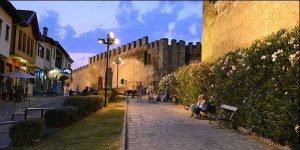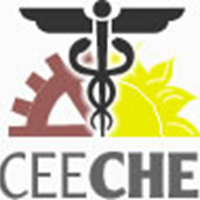Greece provides an excellent backdrop to explore the synergy between health and the environment. Located along the Mediterranean, Ionian, and Aegean Seas, Greece’s ecological resources are both prominent and culturally significant, yet many public health concerns exist. Respiratory and cardiovascular diseases in Greece have risen over recent decades. These disease risks are exacerbated by poor air quality. As of 2023, the World Health Organization (WHO) reported that Greece’s 2.5 PM levels were three times higher than WHO goals. Additionally, changes in climate threaten Greece’s natural resources with increased droughts, wildfires, and rising sea levels, which intensify environmental exposures and disease risks. Addressing the complex interaction between health and the environment calls for holistic approaches and international perspectives.
More About Thessaloniki

Thessaloniki, the capital of the Prefecture of Central Macedonia, is the second-largest city in Greece after Athens. For its continuous historical and administrative importance throughout the ages, Thessaloniki is often honorarily referred to as the national co-capital. The town’s history started in ancient times, and due to its strategic location, it played an important economic and political role in the wider region of the Balkans.

The town was founded in 315 B.C. by King Cassander on the site of a former settlement named Therma. He named it after his wife, Thessaloniki, sister of Alexander the Great.
In Roman times, Thessaloniki was an important trade center for transporting goods between the East and the West. Its economic expansion continued throughout the Byzantine Period, making it one of the Empire’s most important centers. Many of these early Christian and later Byzantine-era churches survive today and have been declared World Heritage Monuments by UNESCO.
Today, Thessaloniki is a modern town that welcomes millions of visitors annually. It is a transportation hub for northern Greece, with a railway system connecting the town to Turkey and the Balkans, a busy port, and an international airport.
With a population of about 1,100,000, Thessaloniki is famous for its ancient monuments, vivid nightlife, and shopping options.
The trademark of Thessaloniki is the White Tower, right on the waterfront. It was built in the 15th century, and along with its history, it has been used as a fort, a prison, and a meteorology laboratory. Today, it houses the Museum of History of Thessaloniki.
Thessaloniki is also well known for the International Trade Fair, which takes place every September, and the International Film Festival in autumn. Numerous cultural events throughout the year add to the city’s intellectuality and spiritual imprint.

Visit the official site of the City of Thessaloniki: https://thessaloniki.gr
For sightseeing options: https://thessaloniki-sightseeing.com
For more excursions, you can see: https://www.visitacity.com
Other interesting web sites: https://www.aigai.gr | http://www.dimosaristoteli.gr
